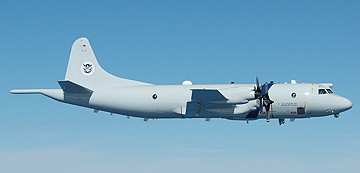Sun, Aug 28, 2011
Advertisement
More News
 ANN's Daily Aero-Term (12.08.25): Decision Altitude (DA)
ANN's Daily Aero-Term (12.08.25): Decision Altitude (DA)
Decision Altitude (DA) A specified altitude (mean sea level (MSL)) on an instrument approach procedure (ILS, GLS, vertically guided RNAV) at which the pilot must decide whether to >[...]
 ANN's Daily Aero-Linx (12.08.25)
ANN's Daily Aero-Linx (12.08.25)
Aero Linx: T-34 Association, Inc. The T-34 Association was formed in July 1975 so that individuals purchasing then military surplus T-34As had an organization which would provide s>[...]
 NTSB Final Report: Piper PA-31T3
NTSB Final Report: Piper PA-31T3
As He Released The Brakes To Begin Taxiing, The Brake Pedals Went To The Floor With No Braking Action Analysis: The pilot reported that during engine start up, he applied the brake>[...]
 Aero-News: Quote of the Day (12.08.25)
Aero-News: Quote of the Day (12.08.25)
“Legislation like the Mental Health in Aviation Act is still imperative to hold the FAA accountable for the changes they clearly acknowledge need to be made... We cannot wait>[...]
 Airborne-Flight Training 12.04.25: Ldg Fee Danger, Av Mental Health, PC-7 MKX
Airborne-Flight Training 12.04.25: Ldg Fee Danger, Av Mental Health, PC-7 MKX
Also: IAE Acquires Diamond Trainers, Army Drones, FedEx Pilots Warning, DA62 MPP To Dresden Tech Uni The danger to the flight training industry and our future pilots is clear. Dona>[...]
blog comments powered by Disqus




